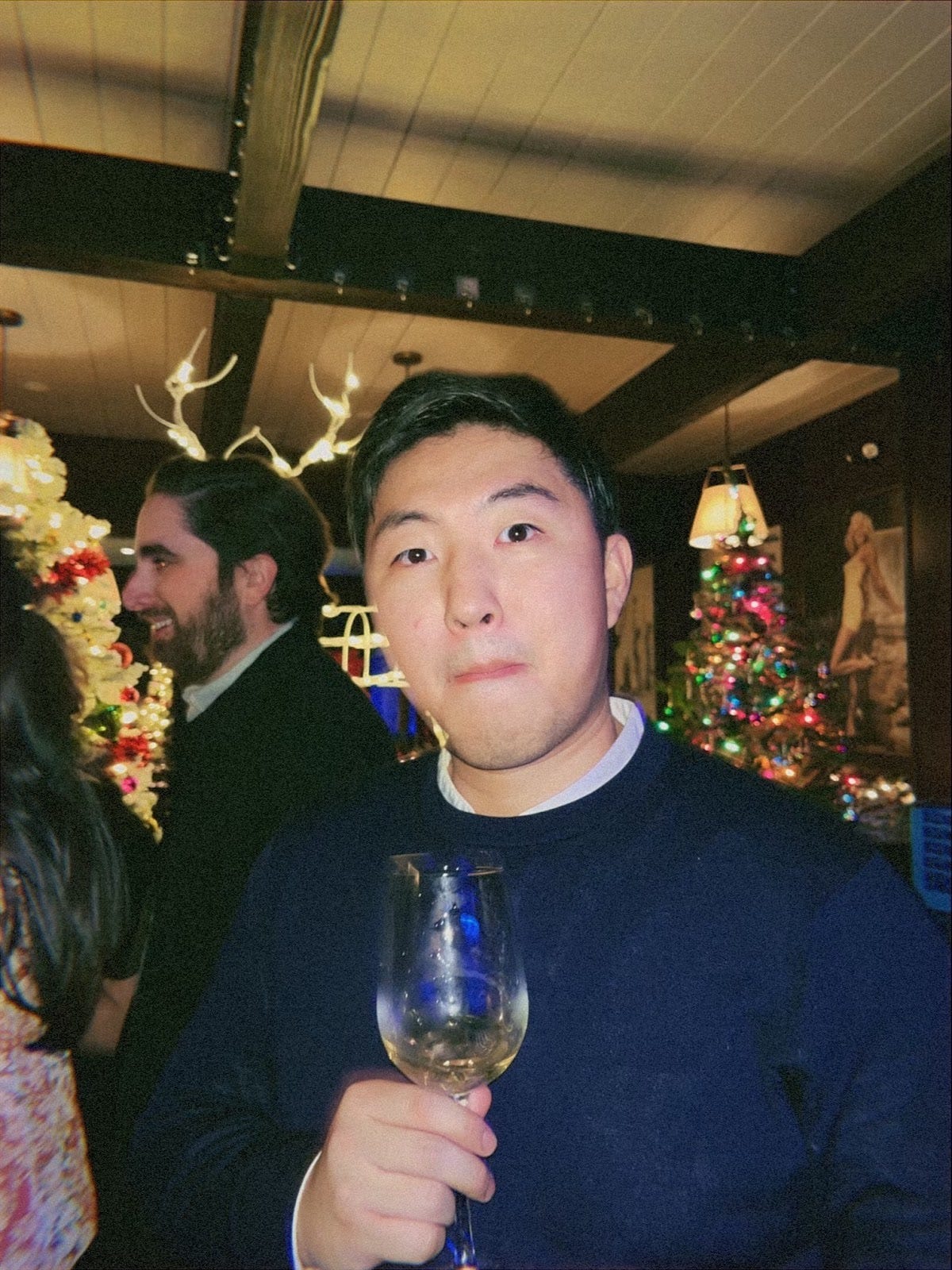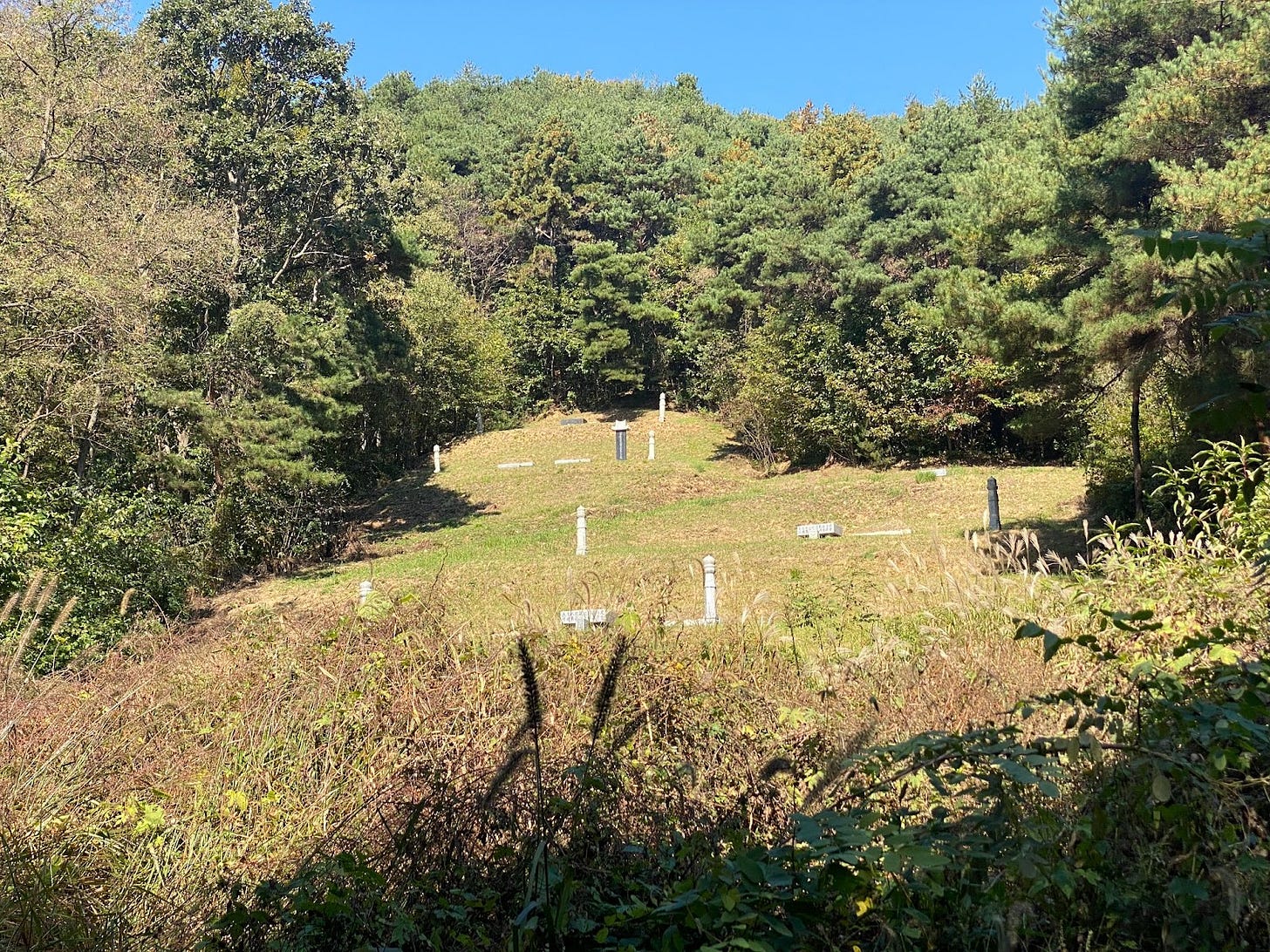Teddy Kim | January 21, 2025
The [Tuesday] Media Diet with Teddy Kim
On Last Call, Wolf Hall, and prediction markets
Teddy Kim is a writer and cofounder of an alcohol wellness startup, Last Call. I met him at a great dinner party in New York and am happy have his recs this week. -Colin (CJN)
Tell us about yourself.
I’m a writer and the cofounder of a startup called Last Call. We make an alcohol wellness supplement, inspired by popular products in Korea and Japan, that you should take any time you drink (here’s a promo code to try). I worked in entertainment before, at United Talent Agency, Netflix, and then on two shows: Beef and The Perfect Couple. I still do a little bit of screenwriting but my main connection to that world now is writing an entertainment column for Emily Sundberg’s Feed Me.
On the side, I write my own generalist newsletter, first Derivative, where I try to cover whatever I find interesting with a focus on events that will actually matter a few years from now and are signs of a trend shift. On a macro level I’m interested in understanding how the world works. How does monetary policy work? How do tribes become nations? How is mass culture shaped? That kind of stuff. On the micro level I’m fascinated by the sheer diversity and rich texture of human life. I enjoy reading things like this crazy piece about illegal gold mining in South Africa.
Describe your media diet.
Old habits die hard so I still read Deadline, Variety, and The Hollywood Reporter everyday. The Wall Street Journal and Financial Times have the best, unbiased news in my opinion. I read Feed Me everyday and try to keep up with my other newsletters: Semafor Flagship, Puck, The Schmear Hunter, Adam Tooze. I love listening to podcasts: Invest Like the Best, Odd Lots, The Town with Matt Belloni, the Dwarkesh Podcast.
It’s gotten less useful since they killed links but Twitter/X is still my favorite source. I try not to venture into my “For You” tab much. If you’re good about using lists, it’s still a great way to get a wide diversity of information and also get breaking developments ahead of mainstream outlets. You do have to be dynamic about who you follow and unfollow. The last few years broke a lot of people’s brains and sometimes people go down rabbit holes that are interesting but I just can’t go down that road with them.
What’s the last great book you read?
Wolf Hall. Hilary Mantel’s prose is dense but alive. Going in, I had no idea Thomas and Oliver Cromwell were different people to be honest (they’re related). Augustus by John Williams was also great. On the nonfiction side I’d highlight Say Nothing and Buddy Levy’s Conquistador, about Cortés’ conquest of the Aztec Empire. I had a very vague high school history-level understanding of that period of history but it’s just an incredible story filled with these larger-than-life characters. It makes Game of Thrones look pretty tame.
After I read Conquistador I got really into trying to figure out if Aztecs and samurai mercenaries ever fought with or against each other. That sounds ridiculous but it’s actually really plausible since the Spanish, after conquering Mexico with their Tlaxcalan allies, were active in Asia in the right time period. The closest I’ve gotten is the Battle of Cagaya in 1582. I love learning about history that complicates my default linear intuition of globalization. I’m trying to learn more about the history of the region and also about how Islam spread there earlier.
What are you reading now?
I’m about 90% of the way through The Power Broker, mostly on audiobook. I’m looking forward to the 99% Invisible podcast series on it after I’m finished. I’m also reading Rabbit, Run for my book club but I haven’t made much progress there yet (sorry guys).
What’s your reading strategy when you pick up a print copy of your favorite publication?
As much as I’d like to be a print guy… The only time I’ll read a magazine now is in the sauna because I think it’s crazy that people bring their phones in there. For general reading, I scan the headlines and open up tabs for any articles I find interesting. Some I’ll add to my news journal. Stuff that I think will make it into first Derivative I’ll set aside to read later. I used to use Instapaper and Pocket a lot for saving articles. I’d like to migrate over to Readwise but right now I just have an untenable open tabs situation.
Who should everyone be reading that they’re not?
If I can evangelize for one person it’d be Tanner Greer. He writes an excellent blog that I discovered through his essay on teaching The Illiad to teenagers in China. In general, his writing is a rare combination of historically erudition and insightful contemporary analysis for things domestic and foreign.
Jordan Schneider’s ChinaTalk is also great for China and tech stuff. Dwarkesh Patel’s podcast especially for his historical interviews. I think a lot of people are reading Feed Me now but if you’re not, you should.
What is the best non-famous app you love on your phone?
I’m obsessed with Letterboxd but that’s pretty well-known now. I love this app called Radiooooo that lets you scroll around on a map and then tune into “radio stations” in different countries. You can go back to previous decades which is really cool. I got really into Iranian disco last summer.
Plane or train?
Both. Air travel still feels magical to me. I love flying over a city at night and seeing its shape and structure illuminated in the pitch black. Trains are a more civilized and romantic way to travel. There’s something about sitting in the Amtrak cafe car that makes me feel like I should be working on a novel or writing a poem.
What is one place everyone should visit?
I think everyone should go visit where their family is from, like your grandparents’ grandparents. A few years ago I went with my grandfather to his ancestral village in South Korea. We went to this hill where three generations of my family were buried and cleaned their graves and made some ritual offerings. Seeing that place and the physical markers of past lives left a deep impression on me. The older I get the more I feel like just one chapter in a long continuing story.
It’s strange to me that only a few generations up and your own family history is unknown to most people. I also think that’ll change in the future with how much data we leave behind now. Maybe in a generation we’ll have our ancestors saved as LLM personalities we can have conversations with. On the same trip to Korea, I did a sort of podcast interview with my grandparents about their lives. I think it’ll be really cool for my own grandkids to listen to that one day.
Tell us the story of a rabbit hole you fell deep into.
Film is a major one I’m still in. I didn’t study film in college. I had one high school film class taught by this great cinema lover, John Loose, where I learned what a “cut” was for the first time. When I got to LA I had to play catch-up and watch a ton of movies. I’ve slowed a bit from my peak. Last year my resolution was to cap my movies at 100 for the year. We live in a unique point in time where, unlike with books, you can probably watch in one lifetime every film made that’s worth watching, just because of how young the medium is. So that’s always very tempting.
My startup is another one. That started with trying to figure out why people get hungover. Turns out it’s not because of dehydration, which is why electrolyte drinks or powders can only do so much. Digging into that led me to learn about DHM, which is a plant extract that’s been used in Japan and Korea for centuries and has gotten some study more recently here in the US. It’s crazy to me that a much better solution exists out there in the world and most Americans are unaware of it so we’re really excited about spreading the word. How to communicate that and reach people is also another rabbit hole in itself.
I’ve also gotten really into prediction markets lately, especially for geopolitical events. The two big lessons I’ve learned in the last few years were from Trump’s election in 2016 and COVID in 2020: 1) do I have an accurate picture of the world? 2) am I acting coherently based on that worldview? In the latter case, I was pretty early to COVID from Twitter and relatives in South Korea. But in my personal life, and investments, I wasn’t making any changes to prepare for what was coming. I think prediction markets are a good way to test if your news diet is any good in terms of accuracy and predictive power and to calibrate your level of confidence. (TK)

